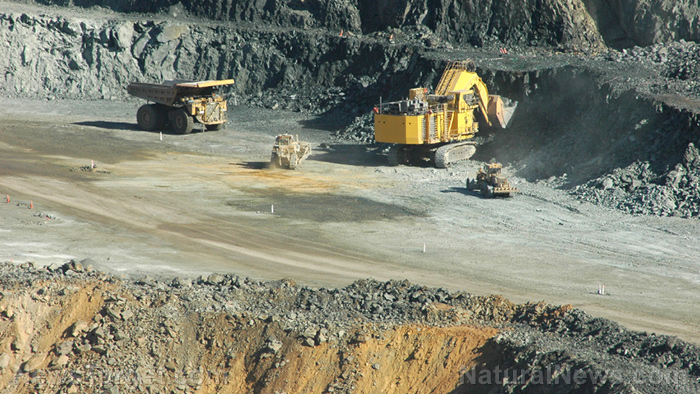- President Trump is set to invoke emergency powers to bypass regulatory hurdles and fast-track domestic mining, processing and refining of critical minerals, reducing reliance on foreign adversaries.
- The urgency stems from China’s control over 80 percent of rare earth processing and key minerals (e.g., lithium, cobalt) – which are vital for technology, defense and renewable energy.
- A March 2025 executive order emphasized reviving the U.S. minerals industry to bolster national security, create jobs and reduce dependence on hostile foreign powers.
- Federal agencies must expedite mining permits, lease federal lands for extraction and propose reforms to outdated laws like the 1872 Mining Act to accelerate development.
- The plan includes public-private partnerships, loans and insurance for mining ventures, along with Export-Import Bank support to secure global mineral supplies for U.S. manufacturing.
In a bold move to reduce America’s dependence on foreign adversaries for critical minerals, U.S. President Donald Trump has invoked emergency powers to fast-track domestic mining, processing and refining of these essential metals.
Reuters reported, citing a document set to be published in the Federal Register, that the chief executive will slash legal requirements – including some congressional funding approvals – relating to the Cold War-era Defense Production Act (DPA). Per the outlet, the DPA «grants the president broad emergency powers to control domestic industries and resources during national security emergencies.»
The urgency behind the order stems from China’s stranglehold on the global supply of rare earth elements and critical minerals, which are indispensable for modern technology and defense systems. By waiving regulatory hurdles and prioritizing federal land use for mining, the administration seeks to reclaim America’s position as a leader in mineral production – a sector vital for everything from smartphones to fighter jets.
Historically, the U.S. was a mining powerhouse – but the shift toward outsourcing coupled with China’s aggressive industrial policies eroded that dominance. Today, China controls over 80 percent of rare earth processing and holds significant influence over cobalt, lithium and other minerals essential for electric vehicles and renewable energy.
Inside Trump’s plan to boost U.S. mining
Trump’s recent actions picked up on an executive order (EO) he signed months earlier. The EO dated March 20, 2025 aimed to bolster national security by reviving the U.S. minerals industry, which has long been overshadowed by China’s near-monopoly over global supply chains.
«The U.S. possesses vast mineral resources that can create jobs, fuel prosperity and significantly reduce our reliance on foreign nations,» The March order stated. «Our national and economic security are now acutely threatened by our reliance upon hostile foreign powers’ mineral production.» (Related: America is too reliant on foreign sources of key minerals needed for «green» economy, data shows.)
Under the order, federal agencies must identify and expedite permits for priority mining projects within days. Meanwhile, the Department of Defense (DoD) and the Department of Energy are tasked with leasing federal lands to private companies for mineral extraction.
Additionally, the administration is pushing for legislative changes to the 1872 Mining Act to streamline waste disposal regulations – statutes that have historically slowed development. The law governs mineral rights on public lands. But beyond regulatory rollbacks, the plan leverages financial incentives to spur investment.
The DoD will partner with private capital through the National Security Capital Forum, while the U.S. International Development Finance Corporation is authorized to provide loans and political risk insurance for domestic mining ventures. The Export-Import Bank is also directed to secure global mineral supplies for U.S. processing, ensuring a steady feedstock for domestic manufacturers.
The Trump administration’s move mirrors past efforts, like the 2010 rare earth crisis when China restricted exports, prompting calls for domestic supply chain resilience. Ultimately, the order signals a decisive step toward decoupling from adversarial supply chains. As global competition for resources intensifies, the success of this initiative could determine whether the U.S. reclaims its industrial independence – or remains at the mercy of foreign producers.
Visit Metals.news for more similar stories.
Watch this Fox News report about Russia and the U.S. negotiating a deal for rare Earth minerals.
This video is from the NewsClips channel on Brighteon.com.
More related stories:
China’s ban on rare earth minerals export rattles the world tech industry.
Texas congressmen introduce bill to reduce U.S. reliance on China rare-earth minerals.
Sources include:
